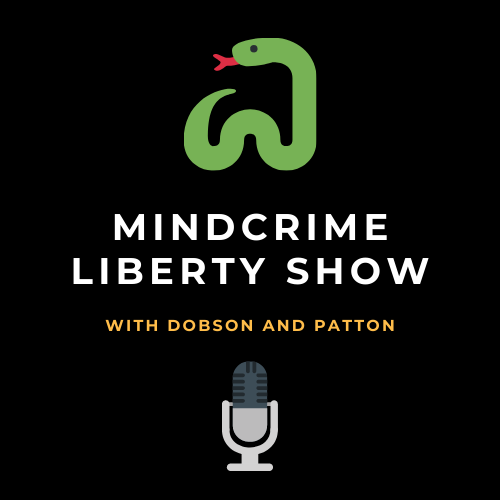
Episodes

Monday Mar 22, 2021
Monday Mar 22, 2021
The mindcrime liberty show continues its discussion of Nassim Taleb's black swan theory and precautionary principle. This time it focuses on the precautionary principle especially in regard to the lock-down as well as other extreme events. What exactly is Nassim Taleb's position on extreme risks and how does he differ from other analysts/scientists in particular mathematical ones ranging from mainstream climate scientists to Fauci and Ferguson. Taleb, like Mises and Hoppe, is very critical of most mathematical models and statistical methods. This is a key part of his work and for that matter for better or worse his "fame," however, unlike Hoppe Taleb has adapted an alarmist position and maintained it and at times uses mathematical models.
Swithun's critique of Taleb's non naive precautionary principle is on his usage of probability and infinity. If one plays a game which is ruinous infinite numbers of time one will eventually be ruined. Defining ruin is itself a continuum problem but even if one does define systemic ruin one still must play the game an infinite number of times which one can't. Taleb has an arbitrary difference between zero probability and events with functional zero probability. Taleb claims that certain events have been observed to be non ruinous so we can give them a functionally zero probability yet we have never seen a virus cause total global ruin yet we have to assign a non zero probably to it. The planet and mankind itself will eventually die the question is only when. Plenty of extreme events to paraphrase Thomas Sowell have no solutions just trade-offs.
Taleb's precautionary principle is useful but his idea of skin in the game and iatragenics which follows standard libertarian analysts of complexity (including Hayek not just Mises) is more useful and sound. Taleb is only doing cost benefit analysis which he is disguising as the non naive precautionary principle while throwing out all his previous ideas to be what amounts to a big government alarmist. When one interferes with a complex system one should be careful about its unintended consequences. The lock-down, as well as most draconian proposals to fix climate change quickly if it exists and is really dangerous may not work anyways as we can see with the heuristic of Sweden or parts of the US that didn't lock-down as much. Nonetheless, even if draconian actions do "work" do they have other costs and do they outweigh the benefits? Its quite clear that Megacorps like Amazon, healthcare apparatuses and the state have increased there power and thereby benefited enormously but has everyone else? Lets look at the most vulnerable themselves like the elderly. Has the nursing home patients in Cuomo's New York which may have one of the highest death-rates in the world (who could have predicted that other then the mindcrime liberty show). Furthermore to discuss other costs many elderly are isolated and can't see there grandchildren or even there spouses. Most of the "cautious" (or hysterical) actions taken especially after 2 weeks are only brought about by using an aggressive police and managerial state all of whom have benefited! Hence had skin in the game the wrong way! They got richer, more prestigious and more powerful thanks to the event.
Speaking of costs, certainty and aggression Taleb has used aggression from the NAP to claim that libertarians should be extra alarmists and minimize travel and wear masks proudly. Although I didn't here Taleb condemn the littany of fiery and peaceful large public gatherings (nor many others) nonetheless it is unknown if going out is actually a superspreader event or not wearing a mask is an aggressive act. Having a gathering while not wearing mask by common law standards is a very beneficial thing to do (not just fiery yet peaceful protests) and not having them has huge known costs. Here is Murray Rothbard on aggression, complexity and uncertainty (which Taleb should know a thing or too about):
If we are unsure, it is far better to let an aggressive act slip through than to impose coercion and therefore to commit aggression ourselves. A fundamental tenet of the Hippocratic oath, “at least, do not harm,” should apply to legal or judicial agencies as well. -Murray Rothbard.

No comments yet. Be the first to say something!